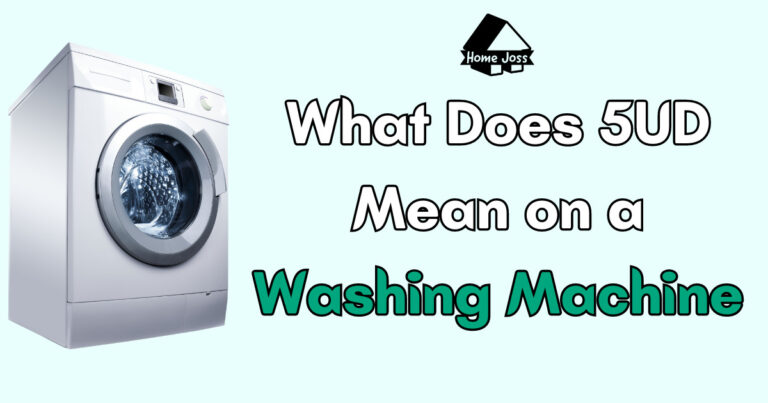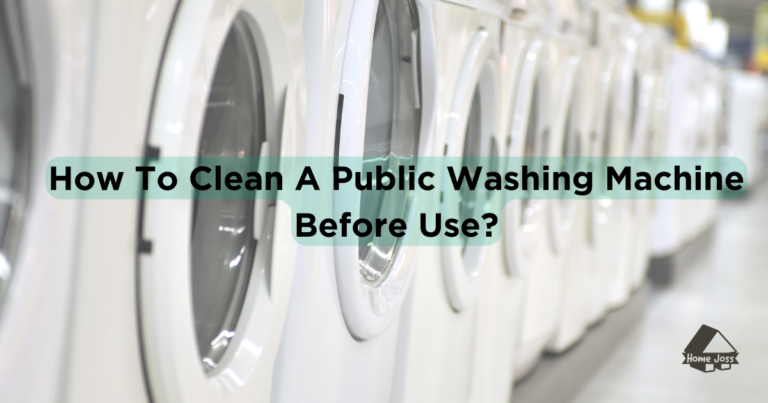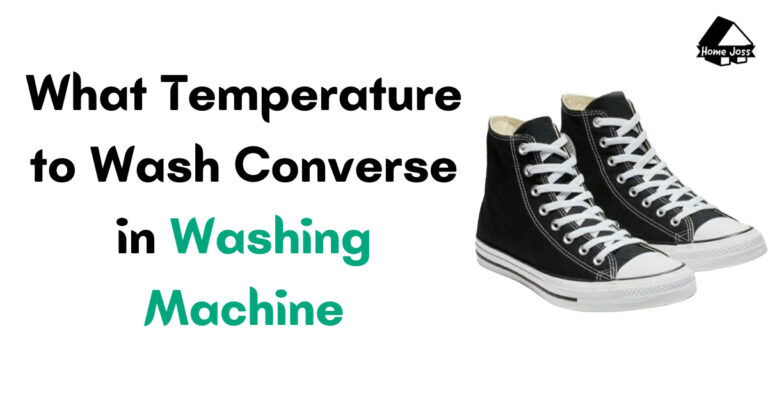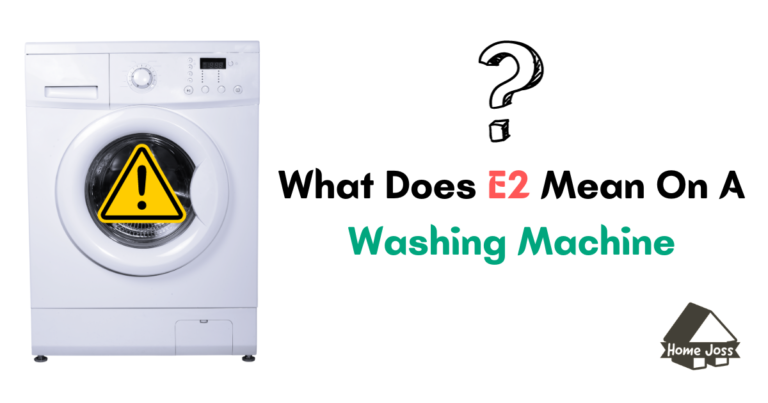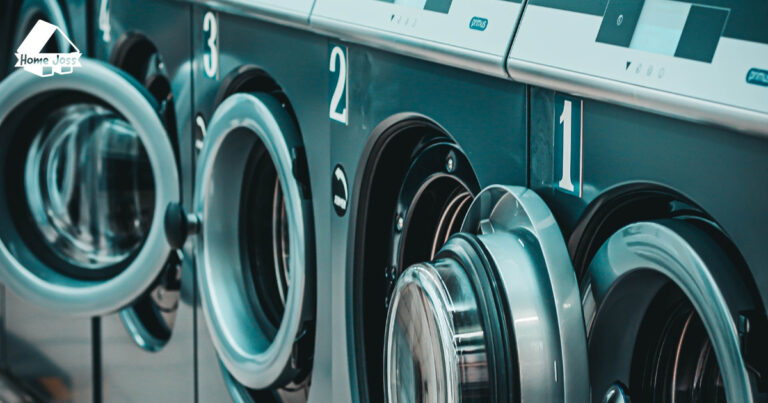When it comes to draining a washing machine outside, homeowners often wonder if it is against the law. Draining a washing machine outside is commonly restricted by local building codes and regulations.
Most states in the US do not allow direct draining of washing machine water outside. The water should ideally drain into a sewer line, floor drain, or utility sink connected to the main sewer line.
However, there are cases where greywater from the washing machine can be drained into the environment, such as trees or bushes, if biodegradable detergents are used.
It is important to comply with local regulations and consider the environmental impact when draining a washing machine outside. To ensure you comply, it is recommended to consult with a professional plumber and check all relevant regulations before installing a washing machine drain outside.
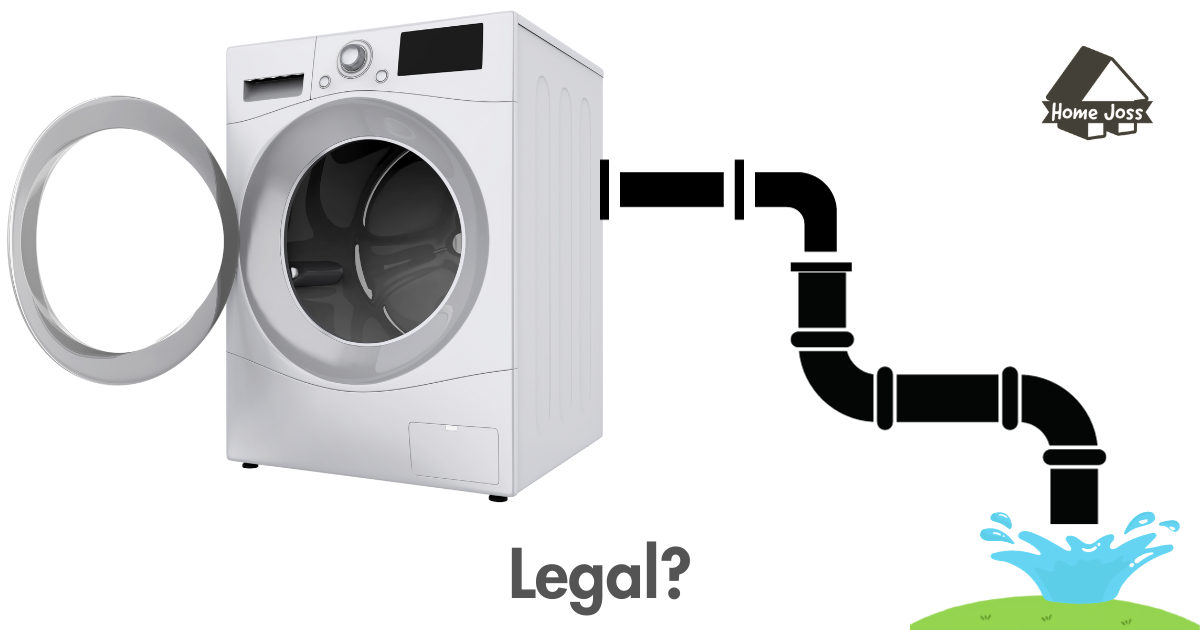
Some states where it is illegal to drain a washing machine outside include New York, Tennessee, Arizona, and North Carolina. These states have specific regulations in place regarding the drainage of washing machines outdoors. To avoid any legal penalties, it is crucial to be aware of the laws in your state and to follow them accordingly.
By understanding the importance of washing machine drainage regulations and considering the environmental impact, homeowners can make informed decisions on how to properly dispose of washing machine water.
Whether it’s connecting to a sewer line or utilizing alternative methods, it is essential to follow the guidelines set forth by local authorities to ensure both legal compliance and the preservation of the environment.
States Where Draining a Washing Machine Outside is Illegal
- New York
- Tennessee
- Arizona
- North Carolina
Several states in the US have strict regulations that prohibit draining a washing machine outside, including New York, Tennessee, Arizona, and North Carolina. These states have implemented laws to protect the environment and ensure proper waste management.
If you are not from those cities you can see How To Run Washing Machine Drain Outside?
In New York, it is illegal to drain a washing machine outside due to concerns about water pollution and contamination. The state requires all wastewater, including from washing machines, to be discharged into the public sewer system or a private septic system.
Similarly, in Tennessee, washing machine drainage must be directed to the public sewer system or a private septic system. The state enforces this rule to prevent untreated wastewater from entering waterways and potentially harming the environment.
In Arizona, homeowners are prohibited from draining washing machines outside. The state’s regulations require wastewater from household appliances, such as washing machines, to be discharged into a sanitary sewer system. This ensures proper treatment and disposal of the wastewater.
North Carolina also has strict laws regarding washing machine drainage. The state mandates that all wastewater from household appliances, including washing machines, must be discharged into a public sewer system or a private septic system. This helps maintain water quality and prevents pollution.
If you reside in one of these states, it is important to comply with the regulations and find alternative methods for draining your washing machine. Consulting with a professional plumber can help you determine the best course of action and ensure that you stay within the legal boundaries.
Remember, it is crucial to consider the environmental impact when disposing of washing machine wastewater. Using biodegradable detergents and exploring options like greywater systems, where applicable, can minimize the negative effects on the environment.
Always be sure to check the specific regulations in your state and locality, as they may have additional requirements or restrictions regarding washing machine drainage. By following the rules and being mindful of the environment, you can ensure responsible and compliant wastewater disposal.
Importance of Washing Machine Drainage Regulations
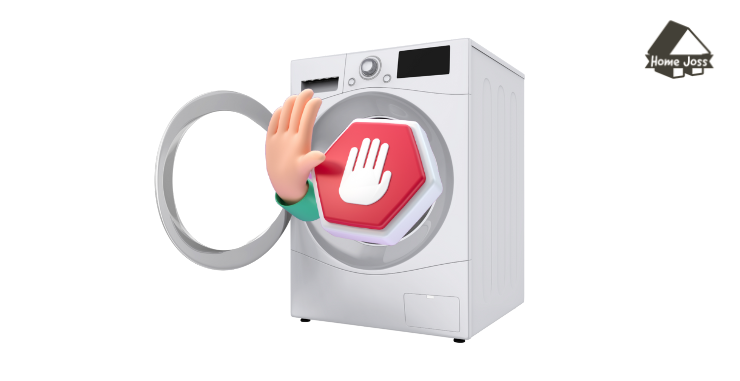
Various regulations exist to ensure that washing machine drainage is carried out in a responsible and environmentally friendly manner. These regulations aim to prevent water wastage, protect water quality, and minimize the potential negative impact on the environment.
Homeowners must understand and comply with these regulations to avoid any legal issues and contribute to sustainability efforts.
When it comes to outdoor washing machine drainage, many municipalities and states in the US have specific laws and guidelines in place. These regulations require homeowners to connect their washing machine drains to designated sewer lines, floor drains, or utility sinks connected to the main sewer line.
By doing so, the wastewater from the washing machine can be properly treated and disposed of by environmental standards.
It is worth noting that some states allow for alternative methods of draining washing machine water outside but under specific conditions. For instance, if biodegradable detergents are used, the greywater from the washing machine can sometimes be directed towards trees or bushes, effectively recycling the water for irrigation purposes.
However, it is essential to follow local regulations and ensure that the detergents used are indeed biodegradable.
Homeowners need to be aware of their state’s regulations regarding draining a washing machine outside. In states like New York, Tennessee, Arizona, and North Carolina, it is illegal to drain a washing machine outside.
Thus, residents of these states must ensure that their washing machine drainage complies with the law. Consulting with a professional plumber or contacting the local authorities can help homeowners better understand the specific regulations in their area and avoid any potential legal consequences.
What Does the Law Say about Draining a Washing Machine Outside?
The laws regarding draining a washing machine outside can vary depending on the state and local building codes. In most cases, it is not allowed to directly drain the water from a washing machine outside.
Instead, the water should be directed to a sewer line, floor drain, or utility sink connected to the main sewer system. These regulations are in place to ensure proper wastewater management and prevent pollution.
However, there are situations where greywater from the washing machine can be drained into the environment, such as trees or bushes, if biodegradable detergents are used.
Greywater refers to wastewater from sources like sinks, showers, and washing machines that can be reused for certain purposes. It is important to note that even when using greywater, it is still necessary to comply with local regulations and consider the environmental impact.
To determine the specific guidelines in your area, it is advisable to consult with a professional plumber or local authorities. They can provide accurate information on the allowed methods of draining a washing machine outside and whether any permits or additional requirements are needed.
It is always better to be proactive in understanding and following these regulations to avoid any potential legal or environmental issues.
Considering Environmental Impact and Alternatives
Draining a washing machine outside can have negative effects on the environment, which is why alternative methods should be considered. When the wastewater from a washing machine is discharged directly into the environment, it can contaminate nearby soil and water sources. The detergents, chemicals, and pollutants present in the wastewater can harm plants, animals, and aquatic life.
To minimize the environmental impact, homeowners should explore alternative options for draining their washing machines. One option is to connect the washing machine drain hose to a floor drain or a utility sink that is connected to the main sewer line. This ensures that the wastewater is properly treated and disposed of through the municipal wastewater system.
Another alternative is the use of a greywater system, where the wastewater from the washing machine is collected and reused for non-potable purposes such as watering the garden or flushing toilets. However, it is important to note that not all states allow the use of greywater systems, so homeowners should check local regulations before implementing this method.
Benefits of Using Biodegradable Detergents
Using biodegradable detergents can also help mitigate the environmental impact of draining a washing machine outside. These detergents are formulated with ingredients that break down more easily in the environment, reducing the risk of pollution.
Additionally, biodegradable detergents are often free from harmful chemicals and additives, making them safer for plants, animals, and water sources. By opting for these eco-friendly detergents, homeowners can take a small but important step toward reducing their environmental footprint.
Homeowners need to be aware that draining a washing machine outside is regulated differently in each state. Some states have strict laws in place that prohibit this practice, while others may have specific guidelines or restrictions.
To ensure compliance with local regulations, it is recommended to consult with a professional plumber who is familiar with the specific laws in your area. By taking the necessary precautions and following the relevant guidelines, homeowners can contribute to protecting the environment while still maintaining the functionality of their washing machines.
FAQ about Is it Illegal to Drain Washing Machine Outside
Is it legal to drain washing machine water outside?
It depends on the state and local regulations. In many areas, it is illegal due to environmental and plumbing concerns. Always check your local laws and regulations.
2. What are the environmental concerns with draining a washing machine outside?
Draining outside can lead to water pollution, soil contamination, and harm to plants and aquatic life due to the chemicals and detergents in the water.
3. Can I use greywater from my washing machine to water my garden?
In some states, it’s allowed if you use biodegradable detergents. However, always check local regulations to ensure compliance.
4. What are the penalties for illegally draining a washing machine outside?
Penalties vary by location but can include fines, warnings, or required modifications to your drainage system to comply with laws.
5. How can I find out if it’s legal to drain my washing machine outside in my area?
Consult with a professional plumber, or contact local authorities or environmental agencies to get accurate information on regulations in your area.
6. Are there any eco-friendly alternatives for draining washing machine water?
Yes, using biodegradable detergents and considering greywater systems where permitted can be eco-friendly alternatives.
7. Why is it illegal in some states like New York and Arizona to drain washing machine water outside?
These states have specific regulations to prevent water pollution, protect soil and water quality, and ensure proper wastewater management.
8. Can I redirect my washing machine water to a utility sink or floor drain?
Yes, this is often a legal and preferred method of draining as it ensures the water goes into the sewer system for proper treatment.
9. What should I do if I’ve been draining my washing machine outside and just learned it’s illegal in my state?
Contact a professional plumber to modify your drainage system to comply with local laws and avoid potential penalties.
10. Are there any health risks associated with draining washing machine water outside?
There can be health risks due to the contamination of soil and water sources with chemicals and bacteria from the dirty water, leading to potential exposure to humans and animals.
However, there are cases where greywater from the washing machine can be drained into the environment, such as trees or bushes, if biodegradable detergents are used. It is important to comply with local regulations and consider the environmental impact when deciding on a drainage method for your washing machine.
If you are uncertain about the regulations in your area, it is recommended to consult with a professional plumber who can provide guidance and ensure that you are following all relevant regulations. They will be familiar with the specific laws in your state and can help you determine the best course of action.
Some states have explicitly made it illegal to drain a washing machine outside. For example, if you reside in New York, Tennessee, Arizona, or North Carolina, it is against the law to drain your washing machine outside. These states have implemented specific regulations to protect the environment and maintain the integrity of their sewer systems.
To avoid any legal consequences or environmental harm, it is crucial to familiarize yourself with the laws and regulations in your area. By doing so, you can ensure that your washing machine is properly connected to an appropriate drainage system and prevent any potential issues down the line.

